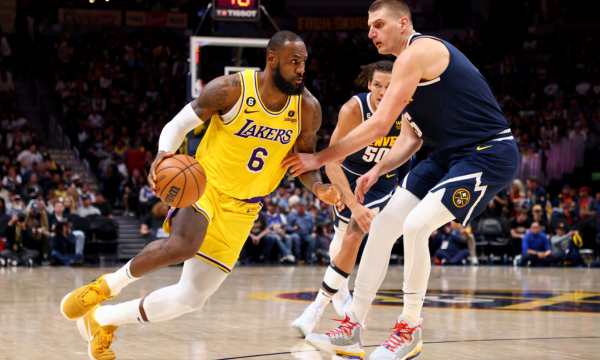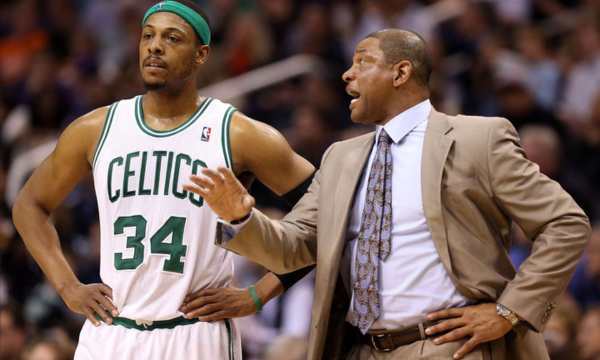How Basketball Coaches Turn Teams into Champions
Behind every glittering trophy stands a coach who combines vision, patience, and relentless attention to detail.
Ad
When we talk about basketball coaches, we are really talking about architects of culture who turn raw potential into synchronized brilliance.
This article unpacks the secrets of these masterminds who turn hopeful squads into serial winners.
From spotting the right talent to out-smarting offenses with airtight defenses, you will walk through the very playbook that molds contenders into legends, giving you fresh respect for the clipboard carriers on every sideline.
How Coaches Identify Compatible Talent
Successful coaches start with an honest talent audit, searching less for superstars and more for role synergy.
They watch a prospect’s decision-making under pressure, communication habits, and willingness to sacrifice shots for better looks. Scouting sessions focus on high-value actions: deflections, screens that free teammates, and fast-break sprint lanes.
Former player Dean Smith called these the invisible stats that win titles. By charting these micro-skills, coaches align personalities and playing styles like puzzle pieces, ensuring that each recruit fills a tactical need rather than duplicating existing skills.
Modern basketball coaches also dive into off-court analytics such as sleep patterns, nutrition logs, and even social media behavior to gauge maturity.
This holistic approach reduces locker-room friction and accelerates team cohesion, proving that compatibility is as much about character as it is about crossover dribbles.
What else is observed by coaches:
- Body language when benched
- Defensive talk on switches
- Natural instinct for spacing
Defensive Systems That Win Championships
Offense sells tickets, but defense raises trophies. Elite basketball coaches build schemes that live on three pillars: pressure at the point of attack, weak-side anticipation, and paint protection without fouling.
Think of Gregg Popovich’s Spurs, whose shifting shell defense forced opponents into late-clock heaves.
Modern analytics fuel these systems; video software flags corner-three attempts, while wearable sensors monitor close-out speeds.
A coach then tailors drills to shave milliseconds off rotations, creating a collective reflex rather than a set of plays.
To sustain that defensive edge across an 82-game grind, basketball coaches rotate strategic rest days and leverage bench depth, turning fatigue management into a sixth defender.
The result is a unit that peaks in May and June when banners are won, not in the Christmas Day spotlight.

Defense-and-offense-in-basketball-(Source-Google)
How Great Coaches Adapt Methods to Each Player
Phil Jackson famously blended Zen philosophy with triangle offense, but his magic rested on customizing messages.
The same play can be explained with analytics to a veteran guard, storytelling to a rookie, or visual cues to an international big man.
Adaptive coaching also respects personal rhythms: some athletes learn at 7 a.m. film study, others after evening walk-throughs. By layering teaching styles, a coach eliminates confusion and cements trust.
Today’s basketball coaches borrow from cognitive science, using color-coded VR simulations and micro-learning apps that deliver bite-sized corrections right after practice.
Such personalization keeps players engaged and accelerates skill retention, turning everyday drills into championship habits.
Teams That Went From Last to Champions
The 2007–08 Boston Celtics jumped from 24 wins to hoisting the Larry O’Brien trophy. The coach at the time Doc Rivers, instilled the mantra ‘Ubuntu’ — I am because we are — reinforcing collective accountability.
Similarly, Sergio Scariolo steered Virtus Bologna from relegation fears to EuroCup glory by designing pick-and-roll coverages that masked roster size disadvantages.
These tales underscore a truth: culture change precedes skill change, and it is the coach who scripts that culture.
Across leagues, basketball coaches who engineer such turnarounds share a devotion to daily standards: no wasted drills, immediate feedback, and team-wide ownership of mistakes.
Their belief systems spread faster than any playbook, igniting confidence that propels losing teams into the history books.

Doc-Rivers-former-Boston-Celtics-coach-(Source-Google)
The Training Routine of Championship Teams
Championship practices feel like a well-scored symphony: warm-ups blend mobility with mindfulness, competitive drills echo game tempo, and cool-downs archive data for staff review.
Technology now streams heart-rate data live to tablets, allowing coaches to tweak load on the fly. Off the court, sleep hygiene and nutrition seminars are embedded into the calendar just like scrimmages.
The result is a holistic regimen where body, mind, and analytics sync.
Veteran basketball coaches also emphasize recovery microcycles, including hydrotherapy and guided meditation sessions that recharge players mentally.
By integrating sports science and mental wellness, they ensure athletes hit playoffs with spring in their legs and clarity in their decisions.
The Best Basketball Coaches in History
From John Wooden’s Pyramid of Success to Geno Auriemma’s dominance in women’s hoops, legendary coaches share a gift for simplifying complexity.
Wooden’s UCLA Bruins rehearsed details as small as tying shoelaces, while Auriemma’s Huskies mastered backscreen timing until it became muscle memory.
Internationally, Aleksandar ‘Sale’ Đorđević turned Serbia into a perennial medal threat through position-less offense. Studying these icons reveals that philosophy, not plays, cements legacies.
Contemporary basketball coaches like Erik Spoelstra and Becky Hammon continue the lineage, proving that adaptability and emotional intelligence are timeless assets.
Their stories remind aspiring coaches that mentorship, curiosity, and a relentless work ethic create coaching immortality.
How to Understand the Game Through a Coach’s Eyes
Watching a game like a coach means monitoring the passes instead of the ball.
Ask: What caused that open corner three? Was it a late stunt, poor tagging, or absent low-man rotation?
Pause broadcasts to predict next actions and then play them to verify. Over time your brain forms the same anticipatory circuits that professionals rely on.
This habit not only enriches fandom but lays groundwork for coaching or volunteer opportunities.
Gone are the days of yelling “pitch!” at every possession. Now you speak the language of spacing, pace, and advantage creation.
If you practice these observation drills consistently, you will join the growing community of basketball coaches who transform living-room couches into front-office think tanks.
Each game becomes a master class, and every possession offers a new clue about the chess match unfolding on hardwood.
Excellence in coaching combines strategy and empathy.
Whether it’s venturing to the sidelines or simply appreciating the art, understanding these insights into player recovery, youth programs, or the next film screening.
Lace up your sneakers, take notes, and help the next champion shine.
 NBA App: Watch Live Games & Highlights
NBA App: Watch Live Games & Highlights
The NBA App has evolved into a powerful hub for fans seeking live action, quick highlights, and original stories that bring the league closer than ever. […]
Keep reading Watch Live Basketball: Best Streaming Apps
Watch Live Basketball: Best Streaming Apps
Remember when catching a game meant rearranging your entire evening around cable schedules? Live basketball streaming changed that forever. Ad Today, you can watch live basketball […]
Keep reading Streetball: The Unwritten Rules Played on Urban Courts
Streetball: The Unwritten Rules Played on Urban Courts
In streetball, what matters is creativity, rhythm, and the respect earned on the court. Ad Forget about the tight scoreboard and referees’ whistles. On the streets, the […]
Keep reading